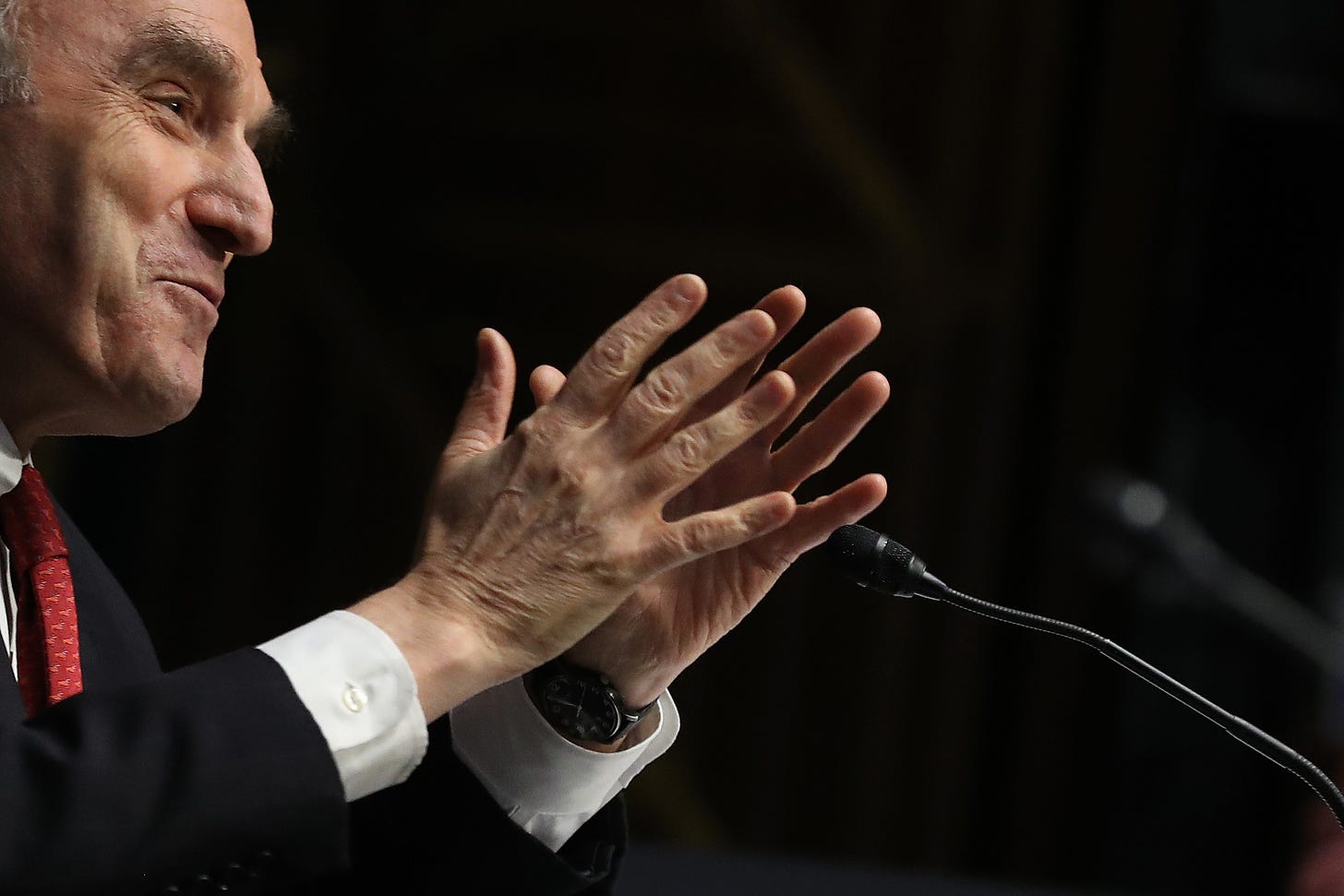Trump Got Bored with Venezuela
Elliott Abrams, the U.S. special representative for Venezuela, has now been given the Iran portfolio, too.

Pop quiz: How many years ago was it that President Trump invited Venezuelan opposition leader Juan Guaidó to the State of the Union Address?
Trick question. It was about six months ago, on February 4. That was the day before the Senate failed to convict Trump on impeachment charges of abuse of power and obstruction of Congress, about two weeks after the first American came down with COVID-19, and among the last times the White House noticeably paid any attention to Venezuela.
Venezuela had long been a focus of Trump’s, if only as a convenient way to equate the Democratic party (and more often than not, particular Democrats) with hellish socialism. Trump established the genre in 2012 with his earliest tweet mentioning Venezuela:

But 2019 was the year Venezuela dominated Trump’s imagination. That invaluable resource, the Trump Twitter Archive, reveals that half of his 44 tweets mentioning Venezuela, Guaidó, or incumbent autocrat Nicolás Maduro are from 2019. So far in 2020, just seven tweets.
This makes sense: 2019 was a dramatic year in Venezuela. Maduro stole an election, while Guaidó, the legally legitimate president of the formerly affluent and democratic country, garnered formal diplomatic recognition from more than 50 countries, including the United States, Canada, and most of South America and Europe. Millions of Venezuelans flooded the streets to demand an end to corruption, autocracy, and economic lunacy. It looked, for a moment, like the underpaid military might jettison Maduro. No such luck. The protests eventually ended amid violent skirmishes with authorities.
The response of the Trump administration was, for the most part, commendable. The hand of American influence could be seen clearly behind the international mass-recognition of the Guaidó-led government. It was possibly Secretary of State Mike Pompeo’s greatest achievement in office, a successful diplomatic effort that united American allies around a noble purpose.
Even Trump seemed to grasp the importance of the moment, proclaiming:
The people of Venezuela have courageously spoken out against Maduro and his regime and demanded freedom and the rule of law. I will continue to use the full weight of United States economic and diplomatic power to press for the restoration of Venezuelan democracy.
To oversee and coordinate that effort, Pompeo announced on January 25, 2019, that Elliot Abrams would become the special representative for Venezuela. Abrams had previously served as assistant secretary of state for human rights and humanitarian affairs and as assistant secretary of state for inter-American affairs (now called Western Hemisphere affairs) in the Reagan administration. He pleaded guilty to two misdemeanor counts of withholding information from Congress as part of the Iran-Contra affair, and was later pardoned by George H.W. Bush. After a stint running the Ethics and Public Policy Center, he returned to government as senior director for democracy, human rights, and international organizations on George W. Bush’s National Security Council. During Bush’s second term, Abrams was promoted to deputy national security advisor for global democracy strategy.
His appointment by President Trump was met with dismay and derision by Rep. Ilhan Omar, which indicates how wise it was. “The entire thrust of the American policy in Venezuela,” Abrams declared, “is to support the Venezuelan people’s effort to restore democracy to their country. That’s our policy.”
At least, that was our policy. This past June, the president expressed more ambivalent feelings about the stolen election that led to the presidential crisis, telling Axios, “Guaidó was elected. I think that I wasn’t necessarily in favor, but I said—some people that liked it, some people didn’t. I was OK with it. I don't think it was—you know, I don't think it was very meaningful one way or the other.”
In a Foreign Relations Committee hearing earlier this week, Sen. Mitt Romney asked Abrams, “Will [America’s pro-Guaidó policy] ever be communicated to the world unless the president expresses it himself? . . . Until the president says that, will it ever break through?”
Abrams did his best to defend the administration in which he serves, pointing out President Trump’s previous support for Guaidó.
Then, yesterday, Pompeo announced that the special envoy for Iran, Brian Hook, was stepping down, and that Abrams would take his place while continuing to manage the Venezuela portfolio as well.
While Abrams now must divide his time between two of the most vexing countries in the world, the post of assistant secretary of state for Western Hemisphere affairs is vacant, as it has been for all but 10 months of the Trump administration. (The president finally in March named a nominee who seems likely to be confirmed soon.) The assistant secretary of state for democracy, human rights, and labor, Robert Destro, is an accomplished law professor, but has no expertise in either Latin America or diplomacy. In May, the president finally nominated an ambassador to Caracas, who is awaiting Senate confirmation.
Even if Abrams were the most efficient and effective civil servant ever to grace the halls of Foggy Bottom, he would still have to struggle to overcome the forces arrayed against him. Maduro’s murderous regime is buttressed by Russia, China, Cuba, Iran—yes, the other country Abrams is now focusing on has a close, supportive relationship with Venezuela—and indifference from a dysfunctional White House. What a difference a few months can make.




